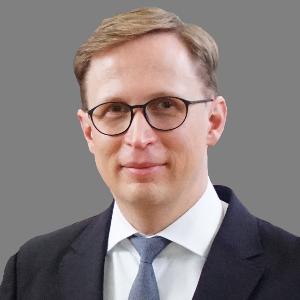The church in times of change
11 Aug 2023
The Georgianum Ducal Foundation has a new director: Professor Stefan Kopp is in charge of the seminary and has also assumed the Chair of Liturgical Studies in the Faculty of Catholic Theology.
11 Aug 2023
The Georgianum Ducal Foundation has a new director: Professor Stefan Kopp is in charge of the seminary and has also assumed the Chair of Liturgical Studies in the Faculty of Catholic Theology.

Professor Stefan Kopp is the new director of the Georgianum Ducal Foundation. | © privat
Before moving to LMU in the summer of 2022, Stefan Kopp, who is originally from Kärnten in Austria, was a professor in the Theological Faculty of Paderborn. Among his responsibilities there, he led a project on the historical study of local liturgical sources and has just published a book on Paderborn Cathedral’s crypt, which had been renovated and completely redesigned.
In his book, he brings together expertise from the fields of archeology and monument preservation, geology and physics, architecture and surveying, as well as art and church history, and combines these with findings from his own discipline.
When working on such interdisciplinary initiatives, the theologian and priest believes it is important to consider the contexts in which liturgy was and is celebrated. That is why he is interested not only in the form and function of church buildings but also in mentalities, which shape people in many different ways.
As this interdisciplinarity makes quite clear, “Liturgical studies is not one single thing,” says Stefan Kopp. “In fact, the subject is a living science with diverse areas of focus spanning the history, theology, and practice of Christian worship, and it is exciting not least because you can build so many bridges to a wide variety of related sciences.”
Of course, the scientific examination of ‘classical’ topics in his field, such as sacramental liturgy, continues to be part of the Catholic theologian’s research portfolio. But Kopp makes it his task to approach such topics in an innovative way, for example by increasingly incorporating ecumenical issues.
An important focus of his research work is the examination of contemporary transformation processes, which the church, like so many other organizations, is increasingly facing. This is nothing new, because “the church has always been exposed to such processes,” says Kopp. “But things are happening today at an accelerated pace and are throwing up challenges that increasingly call for a differentiated view.”
In an atmosphere of lively spirituality, the young people are encouraged to holistically practice living and working in a way that is neither disinterested nor too interested in the world around them, but is simply efficient within the context of the world we live in.Professor Stefan Kopp
While he was still at Paderborn, Stefan Kopp therefore started a graduate college on “The Church in Times of Change.” This was accompanied by a series of publications, now comprising 14 volumes, which reflect on current issues such as change management in the church, power and powerlessness, liturgical forms of expression in the media age, the priestly profession in tomorrow’s church, and diversity.
However, in addition to his academic work, Kopp is also very involved on a practical level: as director of the Georgianum, he trains candidates for the priesthood. Here, too, the focus is on the church in times of change. During their training, young men are encouraged to develop into mature personalities who can deal with change and ambiguity, because as Kopp points out: “We want to nurture stable personalities.” He explains: “We need to show that we have a contribution to make in contemporary society, not only within the church’s walls but also beyond them.”
In that sense, he is keen to accentuate the facilities opposite the university’s main building as a place of study and learning: “We have very good conditions for studying here. In an atmosphere of lively spirituality, the young people are encouraged to holistically practice living and working in a way that is neither disinterested nor too interested in the world around them, but is simply efficient within the context of the world we live in.”